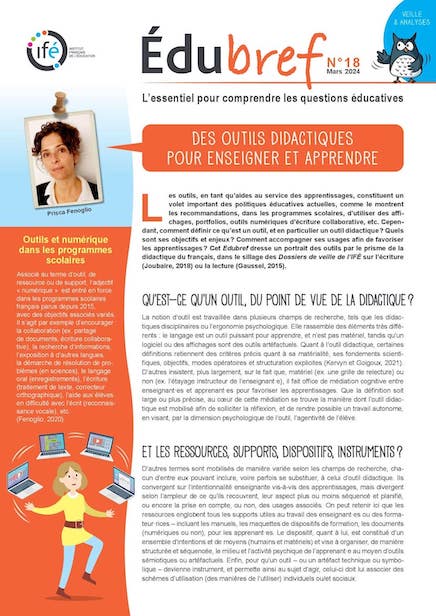Pays : Pologne
Langue(s) : anglais
Date : du 23-10-2014 au 24-10-2014
Lieu : Cracovie
Organisation : European Association of Distance Teaching Universities (EADTU)
hosted by AGH University of Science and Technology
Programme :
In the next five years, online teaching and learning strongly affects higher education on all levels:
New opportunities by open and flexible education
Online education leads to new opportunities for institutions to open their borders to the outside world. By its flexibility, new target groups can be reached in degree courses or shorter diploma courses, professional updating seminars and workshops online, educational cooperation with the industry, or widening access by open educational resources and MOOCs. In some European countries, open and distance teaching universities are created to reach these non-traditional target groups. Opening up universities to these new target groups requires a coherent institutional policy and appropriate organizational and business models within the institution. In a knowledge society, governments should better stimulate and support universities in opening up to citizens and society at large.
Innovative pedagogical models for course design
By new forms of interaction, access to the global knowledge resources and organizational flexibility, new pedagogical models are emerging. In most of these models, students learn by completing learning activities designed by teaching staff. They will inquire and discover new content in rich learning environments, they will organize and structure their knowledge enabled by mapping tools, they will share and communicate knowledge with others in (trans-institutional and transnational) learning communities and networks, they will present and publish knowledge on the web for their peers and even for the wider world. As a rule, these teaching and learning models should not just reproduce traditional educational formats, but lead to a higher quality of teaching and learning in higher education by active learning, very closely related to the actual research and innovation scene in the respective disciplines and supported by staff and peer students. Students will acquire new skills and attitudes, related to self-directed learning as persistence/discipline, self-management, exploration skills in knowledge networks, connectiveness with key sources in these networks, etc.
Curriculum Innovation: the impact of online teaching and learning on the organisation and the cost-effectiveness of curricula
Online teaching and learning and their flexibility in terms of place, time and pace to study, will contribute to the curriculum innovation, where staff is collaborating on courses according to strong learning formats. Curricula will become hybrid or blended as traditional formats (lectures and other face to face modes) will be only used where they deliver an added value to the quality of learning, like also online formats only will be used for the same reasons. The blend will be different according to the educational policy of faculties and institutions. Probably, some will use predominantly or even only online formats. One of the core questions concerns the cost-effectiveness of the blend. It is assumed that this will increase when curricula are collaboratively constructed by teams of staff, rather than by individual staff, but leaving to each of the staff the primary role and responsibility of designing and delivering parts of the curriculum. Hence, the organisation of new types of curriculum and course design are critical quality features for institutions in their transition to blended or online education.
In the plenary sessions, main input comes from inspired invited speakers about innovative pedagogical models for course and curriculum design, the organisational and cost aspects of new modes of teaching and learning in the curriculum and about new role of higher education institutions to open up to various new target groups in degree education, professional updating and university-business cooperation and society at large (i.e. OER, MOOCs).
Some of current EADTU task forces and projects can deliver input, e.g. the EC study about the changing pedagogical landscape (CPL), the empower working group, OpenupEd.
The European Commission and the Polish authorities should have an input at the beginning or at the end of the conference.
Related themes:
- Modernising universities
- Educational technology
- Networked Curricula
- Learning analytics
- QA in e-learning
- Open Educational Resources and MOOCs
- E-learning forecast studies
- Good practices of transitions to open and flexible learning
- Models of open and flexible learning
- Schemes for virtual and blended mobility
- On-line assessments
- E-learning forecast studies
- Open innovation / open development
- Enabling credit transfer
- Virtual mobility
- Legislation of open and online education
Deadline for submission of abstracts: 2 May 2014
URL : http://conference.eadtu.eu/
Contributions :
• articles, diaporamas : http://conference.eadtu.eu/previous-conferences
• enregistrement vidéo : http://vips.liedm.lt/.../44068
L'ensemble des contributions à EADTU 2014 sont rassemblées dans un document pdf téléchargeable de 419 pages. Les enregistrements vidéos de plus de 25 interventions sont disponibles, ainsi que quelques diaporamas.
mot(s) clé(s) : enseignement et formation à distance, enseignement supérieur, pédagogie du supérieur
EADTU annual conference 2014 - Online learning and the future of Higher Education
Date : du 23-10-2014 au 24-10-2014
Lieu : Cracovie
Organisation : European Association of Distance Teaching Universities (EADTU)
hosted by AGH University of Science and Technology
Programme :
In the next five years, online teaching and learning strongly affects higher education on all levels:
New opportunities by open and flexible education
Online education leads to new opportunities for institutions to open their borders to the outside world. By its flexibility, new target groups can be reached in degree courses or shorter diploma courses, professional updating seminars and workshops online, educational cooperation with the industry, or widening access by open educational resources and MOOCs. In some European countries, open and distance teaching universities are created to reach these non-traditional target groups. Opening up universities to these new target groups requires a coherent institutional policy and appropriate organizational and business models within the institution. In a knowledge society, governments should better stimulate and support universities in opening up to citizens and society at large.
Innovative pedagogical models for course design
By new forms of interaction, access to the global knowledge resources and organizational flexibility, new pedagogical models are emerging. In most of these models, students learn by completing learning activities designed by teaching staff. They will inquire and discover new content in rich learning environments, they will organize and structure their knowledge enabled by mapping tools, they will share and communicate knowledge with others in (trans-institutional and transnational) learning communities and networks, they will present and publish knowledge on the web for their peers and even for the wider world. As a rule, these teaching and learning models should not just reproduce traditional educational formats, but lead to a higher quality of teaching and learning in higher education by active learning, very closely related to the actual research and innovation scene in the respective disciplines and supported by staff and peer students. Students will acquire new skills and attitudes, related to self-directed learning as persistence/discipline, self-management, exploration skills in knowledge networks, connectiveness with key sources in these networks, etc.
Curriculum Innovation: the impact of online teaching and learning on the organisation and the cost-effectiveness of curricula
Online teaching and learning and their flexibility in terms of place, time and pace to study, will contribute to the curriculum innovation, where staff is collaborating on courses according to strong learning formats. Curricula will become hybrid or blended as traditional formats (lectures and other face to face modes) will be only used where they deliver an added value to the quality of learning, like also online formats only will be used for the same reasons. The blend will be different according to the educational policy of faculties and institutions. Probably, some will use predominantly or even only online formats. One of the core questions concerns the cost-effectiveness of the blend. It is assumed that this will increase when curricula are collaboratively constructed by teams of staff, rather than by individual staff, but leaving to each of the staff the primary role and responsibility of designing and delivering parts of the curriculum. Hence, the organisation of new types of curriculum and course design are critical quality features for institutions in their transition to blended or online education.
In the plenary sessions, main input comes from inspired invited speakers about innovative pedagogical models for course and curriculum design, the organisational and cost aspects of new modes of teaching and learning in the curriculum and about new role of higher education institutions to open up to various new target groups in degree education, professional updating and university-business cooperation and society at large (i.e. OER, MOOCs).
Some of current EADTU task forces and projects can deliver input, e.g. the EC study about the changing pedagogical landscape (CPL), the empower working group, OpenupEd.
The European Commission and the Polish authorities should have an input at the beginning or at the end of the conference.
Related themes:
- Modernising universities
- Educational technology
- Networked Curricula
- Learning analytics
- QA in e-learning
- Open Educational Resources and MOOCs
- E-learning forecast studies
- Good practices of transitions to open and flexible learning
- Models of open and flexible learning
- Schemes for virtual and blended mobility
- On-line assessments
- E-learning forecast studies
- Open innovation / open development
- Enabling credit transfer
- Virtual mobility
- Legislation of open and online education
Deadline for submission of abstracts: 2 May 2014
URL : http://conference.eadtu.eu/
Contributions :
• articles, diaporamas : http://conference.eadtu.eu/previous-conferences
• enregistrement vidéo : http://vips.liedm.lt/.../44068
L'ensemble des contributions à EADTU 2014 sont rassemblées dans un document pdf téléchargeable de 419 pages. Les enregistrements vidéos de plus de 25 interventions sont disponibles, ainsi que quelques diaporamas.
mot(s) clé(s) : enseignement et formation à distance, enseignement supérieur, pédagogie du supérieur














